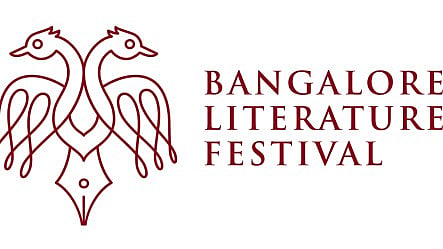
BLF logo
Credit: www.bangaloreliteraturefestival.org
Sessions on the final day of the Bangalore Literature Festival 2023 touched upon climate, poetry, caste, and women in science, among an array of topics captivating audiences at the Lalit Ashok on Sunday.
Ranjit Hoskote and Ruth Padel discussed how climate change and the vulnerability of nature is portrayed in poetry, where Ranjit said: "the responsibility of writing a poem today also means that it has to include voices of other people and members of other species in some way".
He wondered aloud how the poetry can make some difference in reminding people the fragility of ecosystems, in the context of the "irresponsible" construction activity in Uttarakhand that led to the tunnel collapse.
Sounding an urgent clarion call to preserve fragile landscapes in a later session ‘Marginlands: Indian Landscapes on the Brink’, environmental photographer and writer Arati Kumar-Rao shared with Tejaswini Apte-Rahm the "margins" that she meant to highlight in the book were lands, communities and traditional livelihoods that are on the precipice of tipping over due to poor planning and indiscriminate activity.
"Marginlands not about lands somewhere far away; even if we took a walk around the neighbourhood of this hotel, we will find marginlands. We will find it within homes, within people and communities, and the landscape itself," she said.
At the session 'Lab Hopping: Women Scientists in India', authors Aashima Dogra and Nandita Jayaraj chatted with Divya Shekhar about the gender gap in science and research based on conversations with hundreds of women scientists across laboratories in India.
Aashima pointed out that the way people reacted to the saree-clad women in ISRO celebrating the Mangalyaan mission was "very telling of their biases", and emphasised the need to look at gender beyond the binary and through an intersectional lens while discussing representation in science and academia.
"We have a tendency to think that science is above society and does not suffer the biases that regular society faces... in contrast, it is sometimes amplified. We are not encouraged to question science or scientists, because of which, they get away with a lot," said Nandita, who added that caste and disability were some of the other axes of marginalisations affecting scientists, leading to isolation and lacking representation.
In 'Caste a Light: Battles for Equality', Manoj Mitta explained that his initial intention to write a book on the impunity for caste violence transformed into a record of the legal history of caste and legal interventions into caste reforms over the decades. Radhika Iyengar recounted the experience of writing her book 'Fire on the Ganges', an in-depth exploration of the lives of people of the Doms - a Dalit sub-caste community who cremate bodies on the ghats.
Immersive children sessions
Immersive workshops, storytelling sessions, and interactive hands-on activities for children were held simultaneously in the Children Literature Fun section in the Gardens, with three segments for children of different age groups.
Unboxing Bengaluru
Malini Goyal, author of Unboxing Bengaluru: The City Of New Beginnings, and one of the spokespersons of the event, said: “The city’s cultural fabric does not get the attention it needs. Cultural events in the city are held in silos, so we needed to bring them under an umbrella and scale them up. The goal is to make Bengaluru a compelling two-week experience for everyone. We plan to direct a documentary series on the city, as well.”